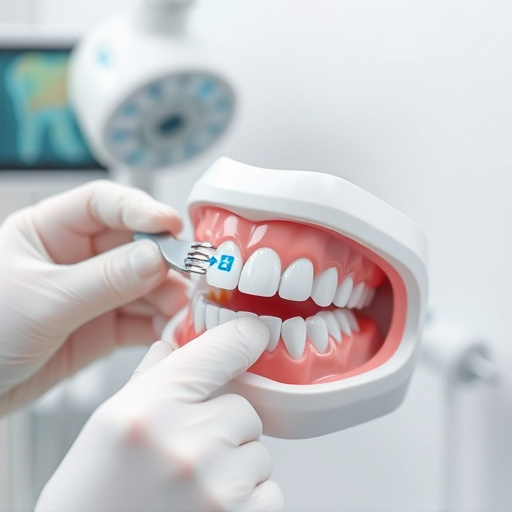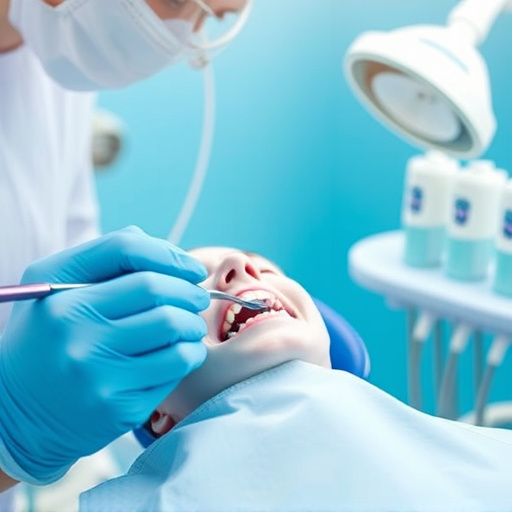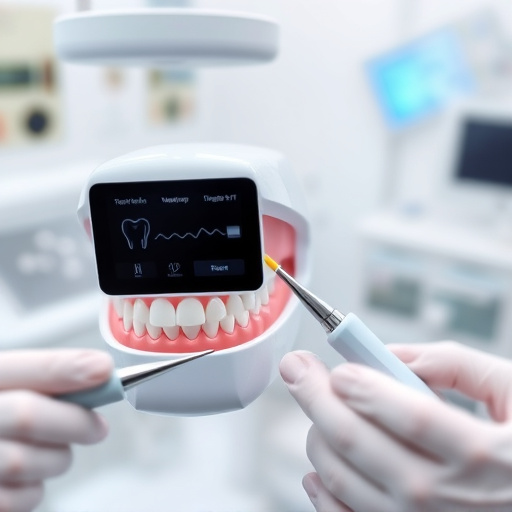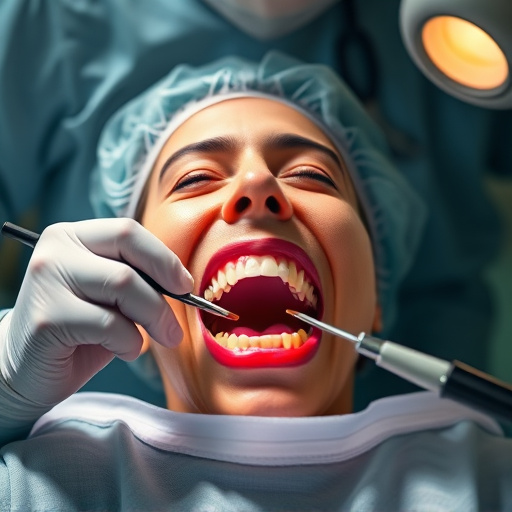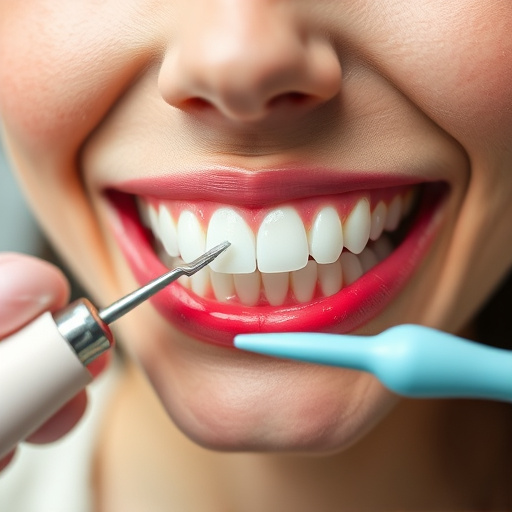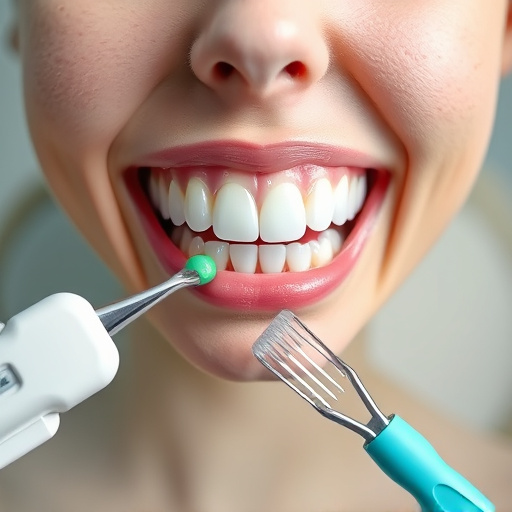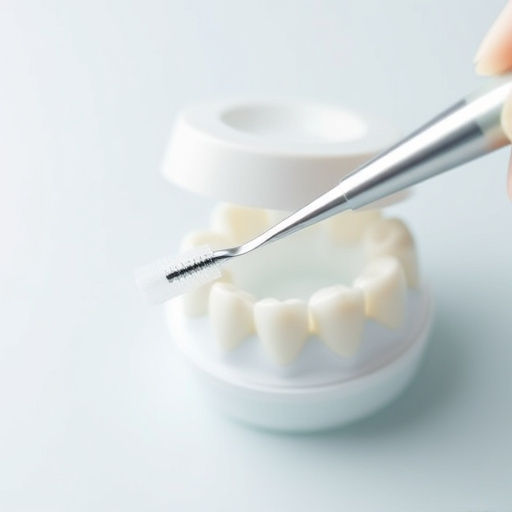Morning breath, caused by reduced saliva and bacterial growth, is a common issue that can be exacerbated by poor oral hygiene or dry mouth. Preventive measures like regular brushing, flossing, dental visits, hydration, and balanced diet are crucial for bad breath treatment. Chronic bad breath requires a multifaceted approach including professional teeth cleaning, dental crowns, clear aligners, and early intervention for gum disease to address underlying causes. Regular oral hygiene practices and preventative dentistry are key to maintaining fresh breath.
Bad breath, or halitosis, is a common concern that can affect anyone, especially in the morning. While occasional bad breath is usually no cause for alarm, chronic issues require attention. Understanding the root causes, such as dry mouth, bacteria buildup, or systemic health problems, is crucial for effective treatment. This article explores various strategies to combat morning and persistent bad breath, offering valuable insights into prevention and maintenance for long-lasting fresh breath. Discover practical tips and natural remedies for a confident, fresh-breath lifestyle.
- Understanding the Causes of Bad Breath in the Morning
- Effective Strategies for Chronic Bad Breath Treatment
- Prevention and Maintenance Tips for Long-Lasting Fresh Breath
Understanding the Causes of Bad Breath in the Morning

Many people experience bad breath in the morning, often referred to as “morning breath,” which can be a combination of various factors. One of the primary reasons is the decrease in saliva production during sleep. Saliva plays a crucial role in neutralizing acids produced by bacteria in your mouth, and when it’s low, these bacteria can proliferate, leading to bad breath.
Additionally, poor oral hygiene practices or conditions like dry mouth (xerostomia) can contribute to morning breath issues. The buildup of food particles and plaque throughout the night provides an ideal environment for odor-causing bacteria to flourish. Regular brushing and flossing, along with a good oral care routine, are essential preventive dentistry methods to combat this. Comprehensive dental care, including regular visits to your general dentistry practitioner, can also help identify and address any underlying issues that may be causing persistent bad breath treatment challenges.
Effective Strategies for Chronic Bad Breath Treatment

Treating chronic bad breath requires a multifaceted approach to address the root causes. One effective strategy is regular dental check-ups and professional teeth cleaning. Dentists can remove plaque buildup, which often leads to bad breath, through scaling and polishing procedures. Additionally, dental crowns or clear aligners can be recommended for patients with specific oral issues that contribute to persistent halitosis.
Beyond routine dental care, lifestyle changes play a significant role in bad breath treatment. Staying hydrated, maintaining good oral hygiene by brushing and flossing regularly, and adopting a balanced diet can all help mitigate the problem. Certain foods known to cause bad breath should be limited, while increasing water intake helps wash away bacteria that contribute to unpleasant odors.
Prevention and Maintenance Tips for Long-Lasting Fresh Breath
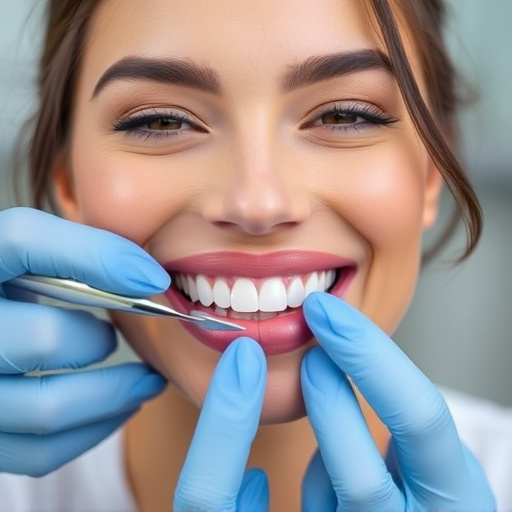
Maintaining fresh breath goes beyond just treating morning breath. Preventative measures are key to long-lasting good oral hygiene and breath health. Regular brushing and flossing, especially after meals, helps remove bacteria that cause bad breath. Utilizing mouthwash can also be beneficial, as it kills bacteria and neutralizes odors.
In addition to these basic practices, visiting your dentist regularly for checkups and cleanings is crucial. Preventive dentistry includes screenings for oral health issues like gum disease, which can contribute to chronic bad breath. Addressing problems early through tooth repair procedures, such as cosmetic fillings, can help maintain a healthy mouth and prevent further complications.
Bad breath can be a persistent issue, but with understanding and effective strategies, it’s manageable. By addressing morning breath causes and implementing chronic bad breath treatment methods, you can achieve long-lasting fresh breath. Regular oral hygiene practices, along with specific remedies targeted at underlying issues, will help prevent bad breath. Remember, consistent care is key to maintaining a breath that stays fresh throughout the day.








